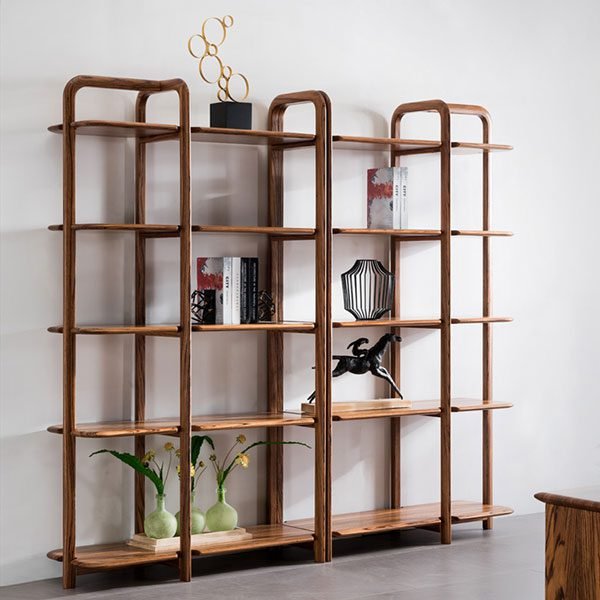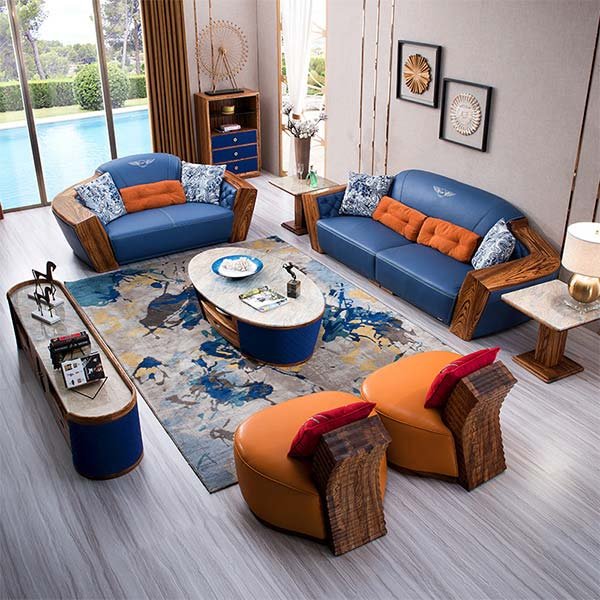“Innovate with confidence: Prototypes pave the way for success in Sofa 2025 OEM projects.”
Benefits of Prototyping in Sofa 2025 OEM Projects
In the world of furniture manufacturing, the process of creating prototypes plays a crucial role in the success of OEM projects. Prototypes are essential in ensuring that the final product meets the desired specifications and quality standards set by the client. In the case of Sofa 2025 OEM projects, prototypes are particularly important due to the complex nature of sofa design and construction.
One of the key benefits of prototyping in Sofa 2025 OEM projects is the ability to test and refine the design before mass production begins. By creating a physical prototype of the sofa, manufacturers can evaluate the overall look, feel, and functionality of the product. This allows them to make any necessary adjustments to the design to ensure that it meets the client’s requirements and expectations.
Prototyping also allows manufacturers to identify any potential issues or challenges that may arise during the production process. By testing the prototype, manufacturers can uncover any design flaws or manufacturing limitations that need to be addressed before mass production begins. This helps to prevent costly mistakes and delays in the production timeline.
Furthermore, prototyping in Sofa 2025 OEM projects allows manufacturers to showcase their capabilities and expertise to clients. By presenting a high-quality prototype of the sofa, manufacturers can demonstrate their attention to detail, craftsmanship, and commitment to delivering a superior product. This can help to build trust and confidence with clients, leading to long-term partnerships and repeat business.
Another benefit of prototyping in Sofa 2025 OEM projects is the ability to gather feedback from clients and stakeholders. By presenting the prototype to the client for review, manufacturers can solicit valuable input and suggestions for improvement. This feedback can be used to make further refinements to the design and ensure that the final product meets the client’s vision and requirements.
Prototyping also plays a crucial role in the production process by serving as a reference point for manufacturers and production teams. The prototype serves as a blueprint for the final product, providing detailed instructions on materials, dimensions, and assembly techniques. This helps to streamline the production process and ensure that the final product is consistent with the prototype.
In conclusion, prototyping is an essential component of Sofa 2025 OEM projects. It allows manufacturers to test and refine the design, identify potential issues, showcase their capabilities, gather feedback from clients, and streamline the production process. By investing time and resources into creating high-quality prototypes, manufacturers can ensure the success of their OEM projects and deliver exceptional products to their clients.
How Prototypes Improve Design and Functionality in Sofa Manufacturing
In the world of sofa manufacturing, the importance of prototypes cannot be overstated. Prototypes play a crucial role in the design and development process, helping OEMs to refine their products and ensure that they meet the needs and expectations of consumers. By creating prototypes, manufacturers can test different design ideas, materials, and functionalities before committing to full-scale production. This not only helps to save time and money but also ensures that the final product is of the highest quality.
One of the key ways in which prototypes improve design and functionality in sofa manufacturing is by allowing manufacturers to visualize their ideas in a tangible form. By creating a physical prototype, designers can see how their concepts translate from paper to reality, allowing them to make adjustments and refinements as needed. This hands-on approach to design helps to ensure that the final product is both aesthetically pleasing and functional, meeting the needs of consumers while also reflecting the brand’s identity.
Prototypes also play a crucial role in testing the functionality of a sofa design. By creating a prototype, manufacturers can test how well the sofa performs in real-world conditions, identifying any potential issues or areas for improvement. This allows designers to make necessary adjustments to the design before moving forward with production, ensuring that the final product meets the highest standards of quality and performance.
In addition to improving design and functionality, prototypes also play a key role in the manufacturing process itself. By creating a prototype, manufacturers can identify any potential manufacturing challenges or issues early on, allowing them to make adjustments to the design or production process as needed. This helps to streamline the manufacturing process, reducing the risk of delays or errors and ensuring that the final product is produced efficiently and cost-effectively.
Furthermore, prototypes can also be used as a valuable tool for market research and consumer feedback. By creating a prototype and showcasing it to potential customers, manufacturers can gather valuable insights and feedback on the design, functionality, and overall appeal of the product. This feedback can then be used to make further refinements to the design, ensuring that the final product meets the needs and expectations of consumers.
Overall, prototypes play a crucial role in sofa manufacturing, helping OEMs to improve design and functionality, streamline the manufacturing process, and gather valuable consumer feedback. By creating prototypes, manufacturers can ensure that their products are of the highest quality, meeting the needs and expectations of consumers while also reflecting the brand’s identity. In an industry as competitive as sofa manufacturing, prototypes are an essential tool for success, helping manufacturers to stay ahead of the curve and deliver products that are both innovative and high-quality.
The Role of Prototypes in Enhancing Customer Satisfaction for Sofa OEM Projects
In the world of sofa OEM projects, prototypes play a crucial role in ensuring customer satisfaction. These early-stage models provide a tangible representation of the final product, allowing both manufacturers and customers to visualize and test the design before mass production begins. By incorporating prototypes into the development process, sofa manufacturers can identify and address any potential issues or improvements, ultimately leading to a higher quality end product.
Prototypes serve as a valuable tool for communication between manufacturers and customers. They allow customers to provide feedback on the design, comfort, and functionality of the sofa before it goes into production. This feedback is essential for ensuring that the final product meets the expectations and needs of the customer. By involving customers in the prototype testing phase, manufacturers can gain valuable insights that can help them make informed decisions about the design and features of the sofa.
Furthermore, prototypes can help manufacturers identify and address any potential manufacturing challenges early in the development process. By testing the design and construction of the sofa in a prototype stage, manufacturers can identify any issues that may arise during mass production. This proactive approach can help manufacturers avoid costly delays and rework down the line, ultimately saving time and resources.
Prototypes also play a crucial role in ensuring that the final product meets quality standards. By testing the durability, comfort, and functionality of the sofa in a prototype stage, manufacturers can identify any areas that may need improvement. This iterative process allows manufacturers to make necessary adjustments to the design and materials, ultimately leading to a higher quality end product.
In addition to enhancing customer satisfaction and quality, prototypes can also help manufacturers save time and resources. By testing the design and features of the sofa in a prototype stage, manufacturers can identify any potential issues early on and make necessary adjustments before mass production begins. This proactive approach can help manufacturers avoid costly rework and delays, ultimately leading to a more efficient production process.
Overall, prototypes play a crucial role in enhancing customer satisfaction for sofa OEM projects. By providing a tangible representation of the final product, prototypes allow manufacturers and customers to visualize and test the design before mass production begins. Prototypes also serve as a valuable tool for communication, allowing customers to provide feedback on the design and features of the sofa. Additionally, prototypes help manufacturers identify and address any potential manufacturing challenges early in the development process, ultimately leading to a higher quality end product. By incorporating prototypes into the development process, sofa manufacturers can ensure that their products meet the expectations and needs of their customers, ultimately leading to increased customer satisfaction and loyalty.
Conclusion
Prototypes are crucial in Sofa 2025 OEM projects as they allow for testing and refining of designs before full-scale production. They help identify potential issues early on and ensure that the final product meets the desired specifications. Additionally, prototypes can help secure investor buy-in and provide a tangible representation of the final product. Overall, prototypes play a vital role in the success of Sofa 2025 OEM projects.



